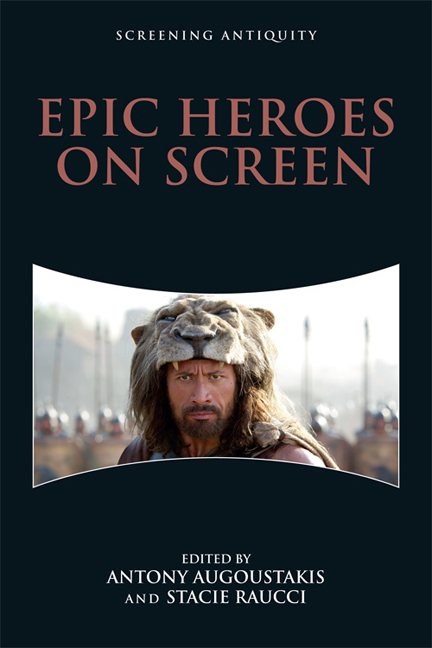2 - Hercules: The Mythopoetics of New Heroism
Published online by Cambridge University Press: 24 April 2021
Summary
INTRODUCTION
It was the mythological figure of Hercules that provided the inspiration for, and helped fuel the success of, comics’ greatest hero, Superman. It is therefore only appropriate that the world of comics should in turn be one of the revitalizing forces that has brought Hercules back to the cinematic screen. One of the most recent and potent examples of the cinematic appropriation of the Herculean myth cycle is Hercules (2014), a film that adapts for the screen Radical Comics’ graphic novel Hercules: The Thracian Wars by Steve Moore (art by Admira Wijaya). Together with The Legend of Hercules (2014), Hercules (2014) provides a useful opportunity to revisit the status and critical responses to the Hercules myth in the first decades of the twenty-first century.
This chapter attempts to place these films within the broader history of cinematic imaginings about Hercules as well as articulate their novel contribution to this tradition. In contrast to earlier versions, in these more recent films we see a cinematic hero more attuned to the problematic nature of heroic mythology and more aware of the narrative problems that such mythology presents to filmmakers. In my analysis, I trace the origins of this new, textually flexible, less canonical hero-type to a recalibration of the status of myth that emerged in the late 1990s where critical modes such as pastiche, irony, and intertexuality encouraged a more playful and less reverent approach to mythical adaptions. Disney's Hercules (1997) is emblematic of this turn. This capacity to reimagine the character of Hercules has been further facilitated by the recent emergence of an audience now trained through the rise of the “mega-text” – texts whose storylines inhabit and cross multiple genres (comics, film, television shows, books, fan writing) – to think newly about topics such as canonicity, tradition, and adaptation. Myth and comic-book storylines have increasingly started to overlap in recent years. Indeed, we can trace the influence of comics not only in providing subject matter, but also in the provision of new reading practices for approaching mythological storylines. In doing so, these films are able to rise to the challenge of how to represent Hercules in the post-Romantic age.
Information
- Type
- Chapter
- Information
- Epic Heroes on Screen , pp. 28 - 42Publisher: Edinburgh University PressPrint publication year: 2018
